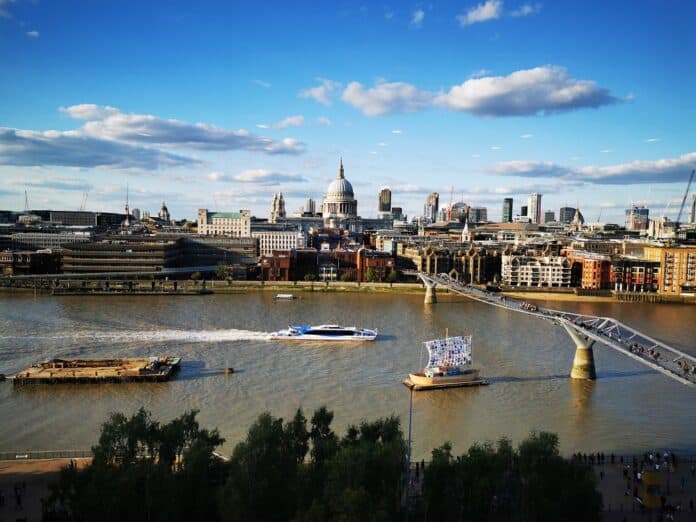London is to be home to the UK’s first eco-friendly high-speed passenger boats by the end of this year, it has been revealed.
Uber Boat by Thames Clippers, which operates passenger riverboat services in London, will be welcoming two new hybrid vessels to its fleet, the first of which will take to the Thames in autumn this year.
The company also recently entered into negotiations with a local council in Gravesend to purchase the town pier, meaning London’s regular riverboat service could be extended to as far as Kent.
Built on the Isle of Wight, the two new boats will be powered by batteries while in central London, switching to biofuel power while outside the central zone. Excess power from the biofuel engines will be used to charge the batteries, removing the need for onshore charging.
The first of the two new hybrid boats in Thames Clipper’s fleet will enter service in autumn 2022, while the second will arrive in spring 2023.
NOW READ: Red route fines increasing for the first time in 10 years
Sean Collins, CEO and co-founder of Uber Boat by Thames Clippers, has said that the new vessels will be a “significant” step towards achieving net zero carbon emissions in London.
Collins said: “It’s going to significantly take us on those next steps to net zero. It’s a significant milestone for the business and, indeed, it’s going to be the first eco-friendly passenger boat for London. It’s certainly a first for a high-speed craft in the UK and probably Europe that will be operating solely on batteries for part of its journey.”
But he added that the River Thames is “not fulfilling its potential” as an alternative means of transport in London and that it has “significant potential to do more”.
Mayor of London Sadiq Khan last week warned that congestion on London’s roads could cost the economy as much as £5.1 billion as new figures revealed that car usage in the capital has almost recovered to pre-pandemic levels.
Despite an increase in the number of people cycling during the pandemic, passenger numbers on public transport have been slow to recover meaning that a greater share of journeys made in London are by car.
Collins said: “[The River Thames has] got significant potential to do more, both for passengers and light freight. I believe it has got a significant part to play in taking vehicles off the road. Historically we’ve noticed that we actually do that.
“A lot of our customers’ alternative would be to take a taxi or to take a private car. But our customer experience is something that really would act as a real alternative to that private vehicle.”
For the latest headlines from the City of London and beyond, follow City Matters on Twitter, Instagram and LinkedIn.







